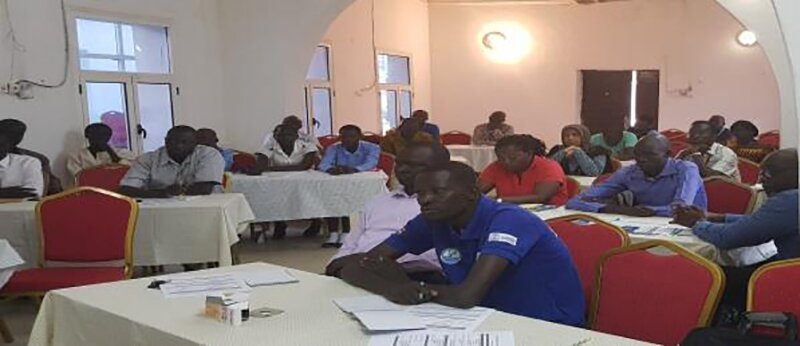South Sudan’s Partnership for Resilience and Recovery (PfRR) was formed among local stakeholders and international organizations to bring a “new way of working” that shifts focus from “meeting needs” to “reducing needs, risks, and vulnerability.” This is incredibly important in a country where an estimated 7.1 million people will require some kind of humanitarian or development assistance in 2019. It is predicted that 5.7 million of these people will need food and livelihood support.
The PfRR in South Sudan consists of donors, UN entities, and non-governmental organizations (NGOs), and is an all-encompassing, unified approach to reduce vulnerability and build resilience through a multi-actor and cross-sector collaboration. PfRR targets seven geographic areas of South Sudan: Yambio, Torit, Aweil, Wau, Rumbek, Bor, and Yei. The partnership builds on community-identified strengths and priorities, while tapping into the remarkable survival abilities of local populations.
As part of ongoing support to the partnership, Africa Lead organized and co-facilitated a joint work planning workshop for the PfRR in Aweil, South Sudan from August 13 – 20, 2019. The objectives of the workshop were to operationalize the Partnership Area Joint Programme Framework on Recovery and Resilience in Aweil. The focus was on the four partnership principles: coordination, collaboration, colocation, and commitment. These “four C’s” align with the draft Aweil Partnership Framework by putting community first and translating stakeholders’ aspirations for recovery and resilience into key priority results that can be delivered within the first year (2019).
The approach also set out to identify a set of shared key convergence results for 2019 and beyond that development partners and local stakeholders can focus on in order to stop the growing trend of vulnerability and increase the coping capacity of individuals, households, and communities. The workshop was attended by 60 participants drawn from the UN entities, USAID, European Union Mission, Department for International Development (DFID), international NGOs, local NGOs and local authorities, as well as traditional leadership within the greater Northern Bhar el Ghazal area. Structured group work, panel discussions, and plenary sessions were designed and implemented to focus convergence efforts around PfRR’s four pillar areas: (1) Re-establish access to basic services, (2) Rebuild trust in people and institutions, (3) Restore productive capacities, and (4) Nurture effective partnerships.
In her opening remarks, Ms. Ros Cooper, the DFID representative, pledged full DFID and UK government support to the PfRR and acknowledged the importance of convergence of efforts by all stakeholders, including the development partners, to build and enhance resilience within the Aweil Partnership Area. Over the five-day workshop the following items were accomplished: key results were agreed upon; an implementation log frame was developed; and it was agreed that the Aweil Reference Group, the Inclusive Champions group, and all other stakeholders will work to realize the PfRR pillars through convergence and coordination. In localizing the resilience agenda, the homogenous community in Aweil agreed that the Dinka translation of “resilience” will be used to popularize and sensitize the community about resilience and recovery efforts.
“The EU will continue supporting collaborative efforts of stakeholders in Aweil and will ensure that the inputs from this workshop are utilized in shaping the support package for Resilience and Recovery”, said Thomas Petersson, EU representative and Co-Facilitator of the JWP workshop.
At the end of the workshop, it was agreed that the identified key results will be further refined and harmonized as they will be the basis of the Aweil PfRR interventions in 2019.
